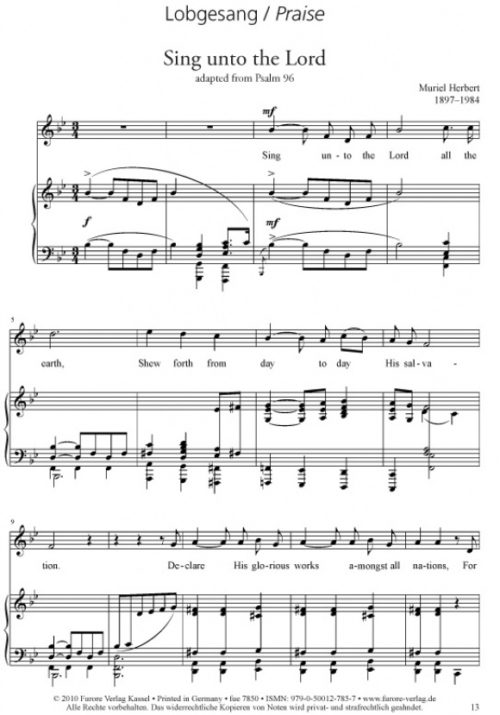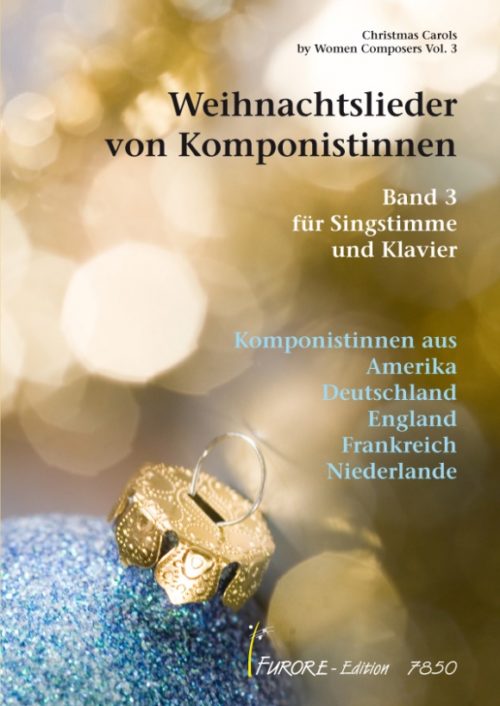She was one of Germany’s famous 19th century literary figure, who was also both a musician and composer. She came from a musical family and studied piano and singing. Her uncle Max Droste taught her theory of music. In the years 1824–1831 she dedicated herself mostly to music especially for the voice. Some unfinished compositions stem from this time. Largely through the influence of her brother-in-law, Lassberg, she became interested in collecting old Volkslieder and contributed to the collections of Ludwig Uhland and August von Haxthausen. This interest culminated in her arrangement of the Lochamer Liederbuch (1836) for voice and piano. She set four poems by Goethe, texts by Clemens von Brentano, Sir Walter Scott, Byron and her own texts to music. She worked on four Operas that remained unfinished. In 1845 Clara Schumann asked her to write an Opera libretto for her husband Robert. However the idea did not come to fruition. Her style shows the influence of the Volkslied, some are recitative like in nature, others contain melodic dissonances and harmonic cross-relations outside the compositorial norm of her time. The spontaneous nature of making music was at the centre of her musicianship. She gave expression to her musical thoughts in free, fetterless fantasias and allowed these mighty improvisations to escape into space, without ever putting them to paper.
Although she considered composition more important than writing, she has been deemed more central to 19th century German literature, creating with her novella Die Judenbuche one of the most important novella works in German romantic literature, representing a landmark in the art of story telling.
-
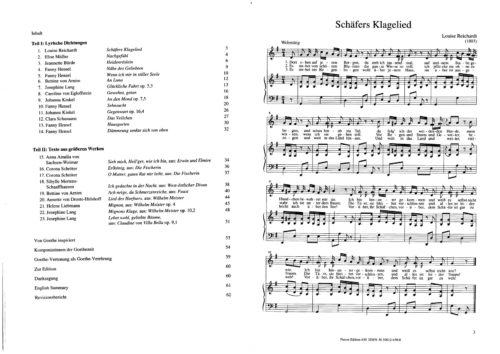
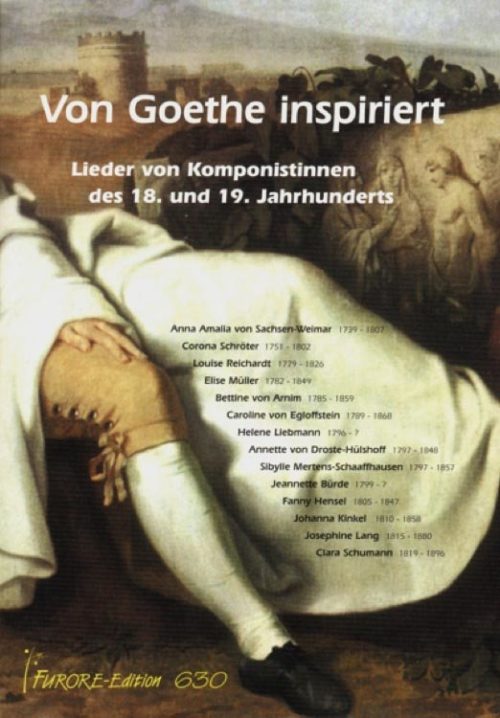
fue 6300
Inspired by Goethe. Songs by women composers of the 18.th and 19.th Centuries
Anna Amalia, Herzogin von Sachsen-Weimar Annette von Droste-Hülshoff Bettine von Arnim Caroline von Egloffstein Corona Schröter Elise Müller Fanny Hensel, geb. Mendelssohn Helene Liebmann Jeanette Bürde, geb. Milder Johanna Kinkel, gesch. Mathieux, geb. Mockel Josephine Lang Louise Reichhardt Sibylle Mertens-Schaafhausen
-
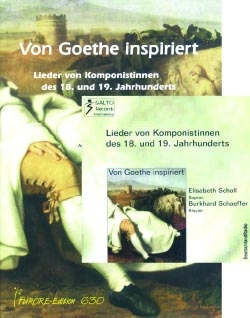
fue 9997
Music book + CD: Inspired by Goethe. Songs by women composers of the 18.th and 19.th Centuries
Anna Amalia, Herzogin von Sachsen-Weimar Annette von Droste-Hülshoff Bettine von Arnim Caroline von Egloffstein Corona Schröter Elise Müller Fanny Hensel, geb. Mendelssohn Helene Liebmann Jeanette Bürde, geb. Milder Johanna Kinkel, gesch. Mathieux, geb. Mockel Josephine Lang Louise Reichhardt Sibylle Mertens-Schaafhausen


